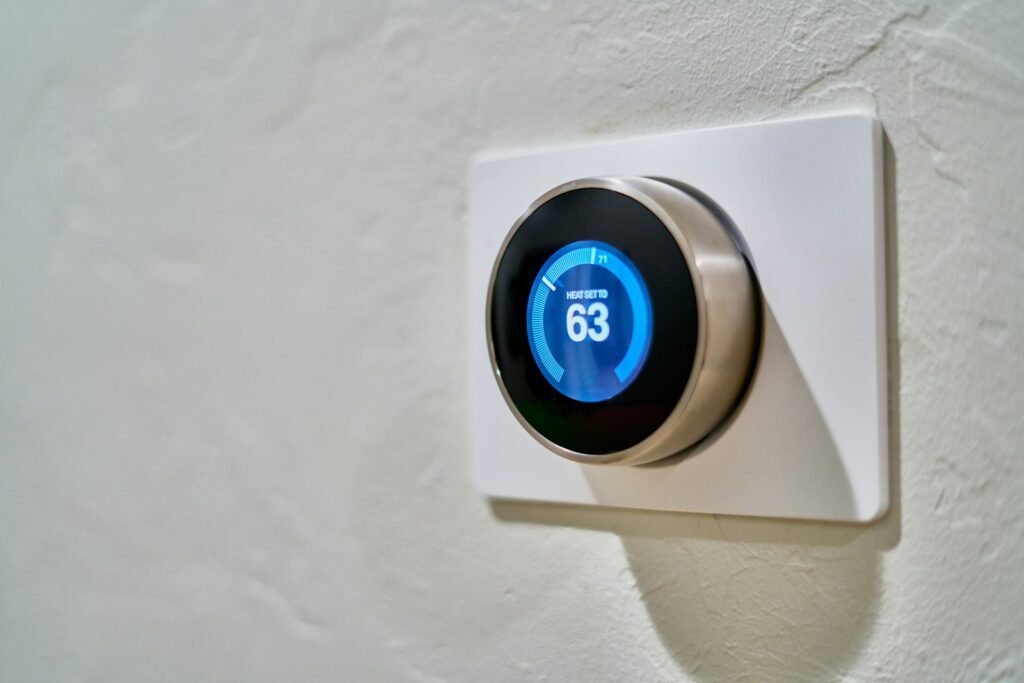When winter sets in, a warm and cozy home is a sanctuary. But what happens when you have hvac problems, cold air issues and your heater blowing cold air?
This is a common issue many homeowners face. It can be frustrating and uncomfortable, especially during the coldest months.

Understanding why your heater is blowing cold air is the first step to resolving the issue. It could be due to a variety of reasons, from simple thermostat settings to more complex mechanical problems.
In this guide, we’ll walk you through the process of troubleshooting your heater’s cold air issue. We’ll cover common causes, steps for diagnosing the problem, and how to fix it.
Remember, while some hvac problems can be resolved with basic troubleshooting, others may require professional attention. Regular maintenance is also key to preventing future problems.
So, let’s dive in and get your home back to being the warm haven it should be.
Understanding Your Heating System
Before diving into heater troubleshooting, it’s essential to know your heating system. Not all heaters are the same, and each type has its quirks.
There are several types of heating systems in homes today. The most common ones include gas furnaces, electric furnaces, and heat pumps. Each of these systems functions differently, and understanding these differences can aid in effective troubleshooting.
- Gas Furnace: Uses natural gas to produce heat. It’s known for efficiency and even heating.
- Electric Furnace: Uses electric elements to generate warmth, often serving as an alternative where gas isn’t available.
- Heat Pump: moves heat instead of making it. It’s good for places with mild weather, but it can have problems, like getting stuck in cooling mode.
Each system has unique characteristics influencing how it handles issues, such as blowing cold air. Identifying which heating system you have is crucial for understanding potential problems and maintenance needs.
Common Causes for Heater Blowing Cold Air
If your heater is blowing cold air, several common issues could be the culprit. Understanding these causes can help in identifying and fixing the problem.

Thermostat Issues: A misconfigured thermostat often leads to heaters blowing cold air. Always check that it’s set to “heat” and the temperature is higher than your current room reading.
Dirty or Clogged Filters: Airflow can be restricted due to dirty or clogged filters. This not only forces your heater to work harder but can result in it blowing cold air.
Pilot Light or Ignition System Malfunctions: In gas furnaces, the pilot light or electronic ignition system is vital for warming your space. If this component fails, only cold air circulates.
Heating Element Problems in Electric Furnaces: Electric furnaces can suffer from heating element issues. When these elements malfunction, the system may blow cold air instead of heat.
Reversing Valve Issues in Heat Pumps: Heat pumps are known for versatility, but they can sometimes get stuck in cooling mode. The reversing valve, which should switch modes, often causes this issue.
Insufficient Gas Supply or Closed Gas Valves: Another cause of cold air from a gas furnace might be a reduced gas supply. This could be due to a closed valve or supply problem, inhibiting its ability to generate heat.
These frequent problems underline the importance of heater maintenance and swift troubleshooting.
Regular inspections can help prevent many issues, ensuring your system runs efficiently and keeps your home comfortable.
Step-by-Step Troubleshooting Guide
Troubleshooting a heater blowing cold air involves a systematic approach. Let’s walk through these steps to address common issues.
Checking Thermostat Settings
Start with the thermostat. Is it set to “heat”? Make sure the temperature is set above the current room temperature. Adjusting a few degrees can sometimes resolve the issue. Confirm that the thermostat is on “auto” mode as “on” might cause the fan to blow continuously.
Replacing Dirty Air Filters
Filters collect dust and debris over time, which can restrict airflow and lead your heater to blow cold air. It’s a straightforward fix. Locate the filter compartment, pull out the old filter, and replace it with a new, compatible one. Aim to do this every 1-3 months for optimal performance.
Inspecting the Pilot Light or Ignition System
Gas furnaces rely on pilot lights or electronic ignition systems. If the pilot light is out, follow manufacturer guidelines to relight it safely. For electronic ignitions, check for error codes displayed on the furnace, which might indicate specific malfunctions needing professional attention.
Assessing Heating Elements or Reversing Valve
In electric furnaces, a faulty heating element can cause cold air issues. Turn off power, open the access panel, and visually inspect for obvious breaks or burns. For heat pumps, the reversing valve may need checking. If stuck in cooling mode, it could require realignment by a professional.
Evaluating Gas Supply and Ductwork
Verify the gas supply to ensure that valves are open and functional. Sometimes, the issue might be external, like a supply interruption. Additionally, inspect ductwork for leaks or disconnections, which can cause warm air to escape before reaching the registers.
Steps in Summary:
- Adjust Thermostat: Check settings and adjust accordingly.
- Change Filters: Replace dirty or clogged ones.
- Pilot Light/Ignition: Confirm proper operation or relight if necessary.
- Inspect Heating Elements: Check for damage, especially in electric systems.
- Gas and Ducts: Ensure adequate supply and sealed ductwork.
By following these troubleshooting steps, you can pinpoint and address many sources of a heater blowing cold air.
Always prioritize safety and consult a professional HVAC technician for complex issues that go beyond basic troubleshooting.
When to Call a Professional HVAC Technician
While some heater issues can be addressed with basic troubleshooting, others demand expert attention. Complex problems, such as electrical faults, significant component failures, or persistent malfunctions, should always be handled by a qualified professional. Attempting to fix these on your own can lead to further damage or safety hazards.
Professional HVAC technicians possess the tools and expertise to diagnose and resolve intricate issues efficiently. Their training allows them to tackle complex tasks, such as repairing a malfunctioning heat exchanger or replacing faulty wiring. This ensures that repairs are done right the first time, reducing the likelihood of repeat issues.
Scheduled professional maintenance not only prevents problems but also optimizes system performance. Regular check-ups and cleaning by an expert can extend the lifespan of your heater and improve energy efficiency.
Hiring a professional protects your equipment and can lower your energy bills, making your home more comfortable.
Preventative Maintenance Tips
Keeping your heater in peak condition requires regular preventative measures. One of the easiest steps is changing air filters routinely. Over time, filters accumulate dust and debris, hampering airflow and system efficiency. Replacing them every one to three months can prevent many common issues and improve air quality.
Seasonal HVAC system checks are vital for spotting potential problems before they become major repairs. A professional inspection can identify wear or damage and ensure your heater is ready for high-demand seasons. These checks help maintain reliability and energy efficiency, saving you from unexpected breakdowns and costly repairs.
Proper insulation and sealing also contribute significantly to heater efficiency. Inadequate insulation allows warm air to escape, making your system work harder than necessary.
Proper insulation and sealing gaps in your home can improve energy efficiency and comfort, easing the load on your heating system.
To summarize, here are three key maintenance tips:
- Replace air filters regularly to maintain airflow.
- Schedule seasonal HVAC inspections for early issue detection.
- Ensure proper insulation and sealing to maximize system performance.
Follow these tips to extend your heating system’s lifespan and keep your home comfortable all year.
The Direct AC 24/7 Difference: Our Commitment to You
At Direct AC 24/7, we pride ourselves on our transparency in service and pricing. We believe in no hidden fees, ensuring you understand every cost upfront. Our approach builds trust with our clients and guarantees you know exactly what services you’re paying for.
We also offer 24/7 emergency availability because we understand heating issues can arise unexpectedly. Our “Fixed right promise” emphasizes our commitment to excellence. If the job isn’t done right, you don’t pay a dime. Our dedication to your satisfaction and comfort is at the heart of everything we do.
FAQ: Troubleshooting Your Heater’s Cold Air Issue
- Why is my heater blowing cold air?Several factors can cause this issue, including incorrect thermostat settings, dirty or clogged filters, ignition system malfunctions, and issues with heating elements or gas supply.
- How can I check if my thermostat is set correctly?Ensure that your thermostat is set to “heat” and the temperature is higher than the current room temperature. Checking that the thermostat is in “auto” mode can also prevent the fan from running continuously without heating.
- When should I replace the air filters in my heater?It is recommended to replace air filters every 1 to 3 months to maintain optimal airflow and efficiency. Checking filters regularly can help prevent common heater issues.
- At what point should I call a professional HVAC technician?If you’ve tried troubleshooting basic issues but your heater continues to blow cold air, or if you suspect there are complex problems, such as electrical faults or significant component failures, it’s best to consult a professional technician.
- How can regular maintenance benefit my heating system?Regular maintenance can extend the lifespan of your heating system, improve energy efficiency, and prevent unexpected breakdowns. Scheduling seasonal inspections with a professional ensures that minor issues are addressed before they escalate into major repairs.
Conclusion: Ensuring Long-Term Comfort and Efficiency
Identifying why your heater is only blowing cold air can save time and discomfort. By checking the thermostat, replacing filters, and inspecting vital components, you can troubleshoot common issues effectively. This proactive approach not only resolves problems but also enhances your heating system’s performance.
Regular maintenance is essential for prolonging your HVAC system’s lifespan and efficiency. Scheduling periodic check-ups with a professional ensures that minor issues are addressed before they escalate. Prioritize comfort and peace of mind by investing in the upkeep of your heating system.
Call to Action
If you’re facing heating challenges, don’t hesitate to reach out to Direct AC 24/7. Our expert HVAC technicians are ready to assist with any heating system concerns you might have. Contact us today to experience top-tier service and long-lasting solutions tailored to your needs.
